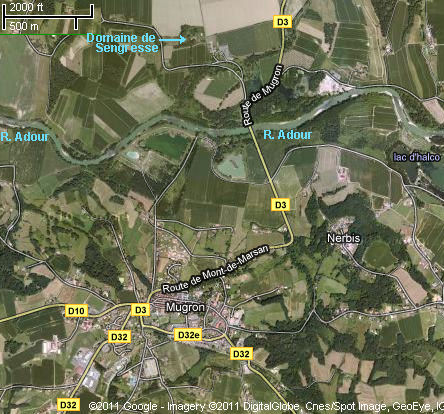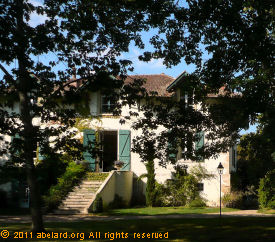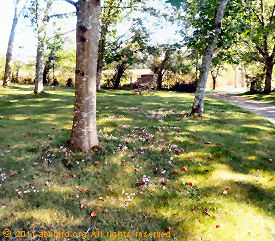Bastiat
on why socialism cannot work
Bastiat wrote innumerable pamphlets and articles in publications.
Right up to his death, Bastiat was writing as fast as
he could, to try and make people understand the distillation
of his decades of study. Bastiat was working on Economic
Harmonies at his death.
Frédéric Bastiat on why socialism cannot work, from Economic
Harmonies, 1850.
20.90
Let us say first of all that the law must take this
stand whenever it is dealing with a debatable act or
practice, when one part of the population approves of
something of which the other part disapproves. You contend
that I am wrong to practice Catholicism; and I contend
that you are wrong to practice Lutheranism. Let us leave
it to God to judge. Why should I strike at you, or why
should you strike at me? If it is not good that one
of us should strike at the other, how can it be good
that we should delegate to a third party, who controls
the public police force, the authority to strike at
one of us in order to please the other?
20.91
You contend that I am wrong to teach my son science
and philosophy; I believe that you are wrong to teach
yours Greek and Latin. Let us both follow the dictates
of our conscience. Let us allow the law of responsibility
[consequences] to operate for our families. It will
punish the one who is wrong. Let us not call in human
law; it could well punish the one who is not wrong.
20.92
You say that I would do better to follow a given career,
to work in a given way, to use a steel plow instead
of a wooden one, to sow sparsely rather than thickly,
to buy from the East rather than from the West. I maintain
the contrary. I have made my calculations; after all,
I am more vitally concerned than you in not making a
mistake in matters that will decide my own well-being,
the happiness of my family, matters that can concern
you only as they touch your vanity or your systems.
Advise me, but do not force your opinion on me. I shall
decide at my peril and risk; that is enough, and for
the law to interfere would be tyranny.
20.93
We see, then, that in almost all of the important actions
of life we must respect men's free will, defer to their
own good judgment, to that inner light that God has
given them to use, and beyond this to let the law of
responsibility take its course.
satirical
story about candlemakers in the 19th century
on tariffs and restrictive practices
A major recurring theme in Bastiat’s
writings is his raging against the bad logic that claims
society can be enriched by taxing and preferential subsidies
for favoured client industries. Bastiat was constantly
on the alert for damaging socialist schemes that attempt
to disavantage competitors by tariffs that end up making
products more expensive for the common man. Taxes, taken
from the public and used to support unions and businesses,
inevitably undermine more productive workers and industries.
Bastiat consistently supports individual
freedom and choice, while mocking the grandiose schemes
of would-be social engineers.
In France, the manufacturers of products associated
with lighting - from candles to candlesticks, street
lamps to tapers, by way of tallow, resins, oils and
alcohol - had a brilliant idea to ensure that the domestic
market for lighting had a head start against foreign
competitors.
They would ensure that no advantage was gained from
the free light emanating from the sun, which clearly
undercuts all genuine and legitimate manufacturers of
light and lighting. This would be in line with the trade
barriers already in place against foreign suppliers
offering products such as wheat, coal, iron and textiles
at prices way lower than French producers could hope
to reach.
The National Assembly [House of Commons] was petitioned
to pass a law requiring all blinds, shutters, curtains
and other means of stopping sunlight entering into buildings
be closed - permanently.
Shutting off much access for natural light creates
a continuing demand for artificial light, thus providing
opportunities for many industries. Clearly this would
generate many positive benefits for commerce and industry,
and so society in general. The advantages would include:
- A greater demand for candles, that are made from
tallow, requiring more cattle and sheep that provide
the fat for making the tallow. Clearly, there will
be the knock-on effect of more land being cleared
and maintained for the animals, as well as increased
by-products of meat, leather, wool and manure, all
which are the basis of agricultural wealth.
- The greater demand for oil to put in oil lamps will
see the expansion in cultivation of poppies, olives
and rapeseed. Any soil depletion caused by these crops
would be offset by the increased availability of animal
manure.
- Moorland
would be covered by resinous trees, which would
draw bees to collect otherwise wasted scented pollen,
creating another industry.
- The need for more whale blubber would mean more
ship-building to increase the fleet, and so more jobs
for sailors to man the ships.
- Another industry that would grow is in the creation
and manufacture of new styles of lamps, candlesticks,
candelabras, as well as the decorating and gilding
of the items.
The whole of French industry and society would benefit
from this simple change to living conditions, from shareholders
in shipping companies to the lowliest match vendor,
thus making French industries grow considerably, and
so out-compete perfidious Albion, where manufacturing
will fail to develop as it suffers from the foolish
use of free sunlight.
[Abridged and rewritten from the original text of Economic
Sophisms, 1845]

View of the Chalossais valley from
the Place Chantilly in central Mugron
This story is a useful warning about
the inclusion of destruction and politicians’ vanity
projects in the GDP [gross domestic product] of nations,
as if such activities add to the common good without incurring
real costs.
Have you ever witnessed the anger of the good shopkeeper,
James B., when his careless son happened to break a
square of glass? If you have been present at such a
scene, you will most assuredly bear witness to the fact,
that every one of the spectators, were there even thirty
of them, by common consent apparently, offered the unfortunate
owner this invariable consolation - "It is an ill
wind that blows nobody good. Everybody must live, and
what would become of the glaziers if panes of glass
were never broken?"
Now, this form of condolence contains an entire theory,
which it will be well to show up in this simple case,
seeing that it is precisely the same as that which,
unhappily, regulates the greater part of our economical
institutions.
Suppose it cost six francs to repair the damage, and
you say that the accident brings six francs to the glazier's
trade - that it encourages that trade to the amount
of six francs - I grant it; I have not a word to say
against it; you reason justly. The glazier comes, performs
his task, receives his six francs, rubs his hands, and,
in his heart, blesses the careless child. All this is
that which is seen.
But if, on the other hand, you come to the conclusion,
as is too often the case, that it is a good thing to
break windows, that it causes money to circulate, and
that the encouragement of industry in general will be
the result of it, you will oblige me to call out, "Stop
there! your theory is confined to that which is seen;
it takes no account of that which is not seen."
It is not seen that as our shopkeeper has spent six
francs upon one thing, he cannot spend them upon another.
It is not seen that if he had not had a window to replace,
he would, perhaps, have replaced his old shoes, or added
another book to his library. In short, he would have
employed his six francs in some way, which this accident
has prevented.
Let us take a view of industry in general, as affected
by this circumstance. The window being broken, the glazier's
trade is encouraged to the amount of six francs; this
is that which is seen. If the window had not been broken,
the shoemaker's trade (or some other) would have been
encouraged to the amount of six francs; this is that
which is not seen.
And if that which is not seen is taken into consideration,
because it is a negative fact, as well as that which
is seen, because it is a positive fact, it will be understood
that neither industry in general, nor the sum total
of national labour, is affected, whether windows are
broken or not.
Now let us consider James B. himself. In the former
supposition, that of the window being broken, he spends
six francs, and has neither more nor less than he had
before, the enjoyment of a window.
In the second, where we suppose the window not to have
been broken, he would have spent six francs on shoes,
and would have had at the same time the enjoyment of
a pair of shoes and of a window.
Now, as James B. forms a part of society, we must come
to the conclusion, that, taking it altogether, and making
an estimate of its enjoyments and its labours, it has
lost the value of the broken window.
When we arrive at this unexpected conclusion: "Society
loses the value of things which are uselessly destroyed;"
and we must assent to a maxim which will make the hair
of protectionists stand on end - To break, to spoil,
to waste, is not to encourage national labour; or, more
briefly, "destruction is not profit."
What will you say, Monsieur Industriel -- what will
you say, disciples of good M. F. Chamans, who has calculated
with so much precision how much trade would gain by
the burning of Paris, from the number of houses it would
be necessary to rebuild?
I am sorry to disturb these ingenious calculations,
as far as their spirit has been introduced into our
legislation; but I beg him to begin them again, by taking
into the account that which is not seen, and placing
it alongside of that which is seen. The reader must
take care to remember that there are not two persons
only, but three concerned in the little scene which
I have submitted to his attention. One of them, James
B., represents the consumer, reduced, by an act of destruction,
to one enjoyment instead of two. Another under the title
of the glazier, shows us the producer, whose trade is
encouraged by the accident. The third is the shoemaker
(or some other tradesman), whose labour suffers proportionably
by the same cause. It is this third person who is always
kept in the shade, and who, personating that which is
not seen, is a necessary element of the problem. It
is he who shows us how absurd it is to think we see
a profit in an act of destruction. It is he who will
soon teach us that it is not less absurd to see a profit
in a restriction, which is, after all, nothing else
than a partial destruction. Therefore, if you will only
go to the root of all the arguments which are adduced
in its favour, all you will find will be the paraphrase
of this vulgar saying - What would become of the glaziers,
if nobody ever broke windows?

I was at Bordeaux. I had a cask of wine which was
worth 50 francs; I sent it to Liverpool, and the customhouse
noted on its records an export of 50 francs.
At Liverpool the wine was sold for 70 francs. My representative
converted the 70 francs into coal, which was found to
be worth 90 francs on the market at Bordeaux. The customhouse
hastened to record an import of 90 francs.
Balance of trade, or the excess of imports over exports:
40 francs.
These 40 francs, I have always believed, putting my
trust in my books, I had gained. But M. Mauguin tells
me that I have lost them, and that France has lost them
in my person.
And why does M. Mauguin see a loss here? Because he
supposes that any excess of imports over exports necessarily
implies a balance that must be paid in cash. But where
is there in the transaction that I speak of, which follows
the pattern of all profitable commercial transactions,
any balance to pay? Is it, then, so difficult to understand
that a merchant compares the prices current in different
markets and decides to trade only when he has the certainty,
or at least the probability, of seeing the exported
value return to him increased? Hence, what M. Mauguin
calls loss should be called profit.
A few days after my transaction I had the simplicity
to experience regret; I was sorry I had not waited.
In fact, the price of wine fell at Bordeaux and rose
at Liverpool; so that if I had not been so hasty, I
could have bought at 40 francs and sold at 100 francs.
I truly believed that on such a basis my profit would
have been greater. But I learn from M. Mauguin that
it is the loss that would have been more ruinous.
My second transaction had a very different result.
I had had some truffles shipped from Périgord
which cost me 100 francs; they were destined for two
distinguished English cabinet ministers for a very high
price, which I proposed to turn into pounds sterling.
Alas, I would have done better to eat them myself (I
mean the truffles, not the English pounds or the Tories).
All would not have been lost, as they were, for the
ship that carried them off sank on its departure. The
customs officer, who had noted on this occasion an export
of 100 francs, never had any re-import to enter in this
case.
Hence, M. Mauguin would say, France gained 100 francs;
for it was, in fact, by this sum that the export, thanks
to the shipwreck, exceeded the import. If the affair
had turned out otherwise, if I had received 200 or 300
francs' worth of English pounds, then the balance of
trade would have been unfavorable, and France would
have been the loser.
From the point of view of science, it is sad to think
that all the commercial transactions which end in loss
according to the businessmen concerned show a profit
according to that class of theorists who are always
declaiming against theory.

bastiat’s
regular method of reductio ad absurdum
From Frédéric
Bastiat, a man alone, pp 231-2
As Henry Hazlitt pointed out in his introduction to
one of Bastiat’s books:
He was the master of the reductio ad absurdum. Someone
suggests that the proposed new railroad from Paris
to Madrid should have a break at Bordeaux. The argument
is that if goods and passengers are forced to stop
at that city, it will be profitable for boatmen, porters,
hotelkeepers and others there. Good, says Bastiat.
But then why not break it also at Angouleme, Poitiers,
Tours, Orleans, and, in fact, at all intermediate
points? The more breaks there are, the greater the
amount paid for storage, porters, extra cartage. We
could have a railroad consisting of nothing but such
gaps-a negative railroad!
where bastiat
lived

The Bastiat family property at Sengresse, near Mugron,
was acquired by Frédéric Bastiat’s
grandfather after the Revolution.
In 1825, when Bastiat was 24 years old, his grandfather
died. He inherited the manor Sengresse and over a dozen
farms. Bastiat then lived at Sengresse.
 
The main house and cyclamen-covered
lawn that are part of the Bastiat former estate at Sengresse,
near Mugron in Les Landes
The substantial and comfortably restored house with three
hectares (7.5 acres) now
takes paying guests.

Mugron a pretty little town, which has almost forgotten
Frédéric Bastiat, looks down over the fertile Chalossais valley. However, Bastiat is remembered in many of the
local villages and towns, which often have their own rue de Frédéric Bastiat.

There is a local organisation, le
cercle Frédéric Bastiat, that has
two missions :
- To keep alive the memory of that great humanist and
economist, Frédéric Bastiat.
- To propagate his ethics of individual liberty and
responsibility.
As well as with conferences, they fulfil their aims by
holding a dinner-debate every quarter with a disourse
and debate focussing on social and economic issues. Some
of the discourses are translated into English,
while all are available in French.
related material
citizen’s
wage
It is necessary to remember that Bastiat was financially
secure, and a land owner.
advertisement
bibliography
 |
Frédéric
Bastiat, a man alone
by George Charles Roche III |
 |
amazon.co.uk
Arlington House,1971
ISBN-10: 0870001167
ISBN-13: 978-0870001161
amazon.com
Arlington House, 1970
ASIN: B002TBFWUQ |
| This book is a very
useful and readable introduction to the life of Frédéric
Bastiat in the context of the history of politics
and economics. |
 |
By Robert Leroux |


|
Original in French:
Lire Bastiat : Science sociale et libéralisme
Hermann, pbk, 2008
Language French
ISBN-10: 2705667156
ISBN-13: 978-2705667153
£20.01 [amazon.co.uk] {advert}
Unfortunately, the English
translation is sold at an exorbitant price. A more
reasonably priced paperback edition may appear in
due course.
Political Economy and Liberalism in France:
The Contributions of Frederic Bastiat (Routledge
Studies in the History of Economics)
Routledge, hbk,
2011
ISBN-10: 0415580552
ISBN-13: 978-0415580557
£71.25 [amazon.co.uk] {advert}
$115.56 [amazon.com] {advert} |
 |
Frederic
Bastiat, Library of Economics and Liberty
Providing links to complete versions in English of
Bastiat’s main works. |
 |
bastiat.net [English version]
Some
personal background to Frédéric Bastiat.. |
end notes
- Cobden and the League, published in 1845
Economic Sophisms, published in 1845
Economic Harmonies, published in 1850
the Law published in 1850.
- The sculptor of this statue
was Gabriel-Vital Dubray [1813-1878].
|

|























